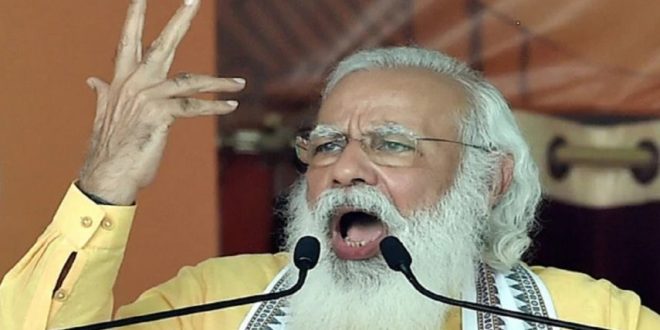AT
Kabul: India, the world’s most populous nation, is currently undergoing the world’s lengthiest parliamentary election spanning six weeks. The ruling Bharatiya Janata Party (BJP), led by Prime Minister Narendra Modi, is anticipated to secure a third consecutive term.
Addressing a significant election rally in Rajasthan, Modi referred to India’s Muslims as “infiltrators” and those with larger families, alleging that if his government’s opponents were elected, they would redistribute the nation’s wealth among them.
Modi’s remarks, characterized by Islamophobic undertones, have triggered backlash from his adversaries, who have long accused the BJP of employing divisive rhetoric to promote a nationalist agenda. Following these statements, opposition members have urged the Election Commission to investigate Modi for potential violations of election laws.
In accordance with these regulations, Indian politicians are prohibited from appealing to voters based on caste or social sentiments, as well as from engaging in activities that may exacerbate religious or communal tensions.
Notable figures within India’s Muslim community express concerns that a BJP return to power could exacerbate existing social divisions. Modi’s remarks have drawn criticism from these figures, with journalist Rana Ayub denouncing them as a direct, targeted attack based on hatred.
Asaduddin Owaisi, a Muslim lawmaker and president of the All India Muslim Union Congress, condemned Modi’s rhetoric as exploitative and aimed at garnering votes. Meanwhile, Mallikarjun Kharge, leader of the opposition Congress party, labeled Modi’s comments as “hate speech” and a deliberate attempt to divert attention.
 Afghanistan Times
Afghanistan Times




